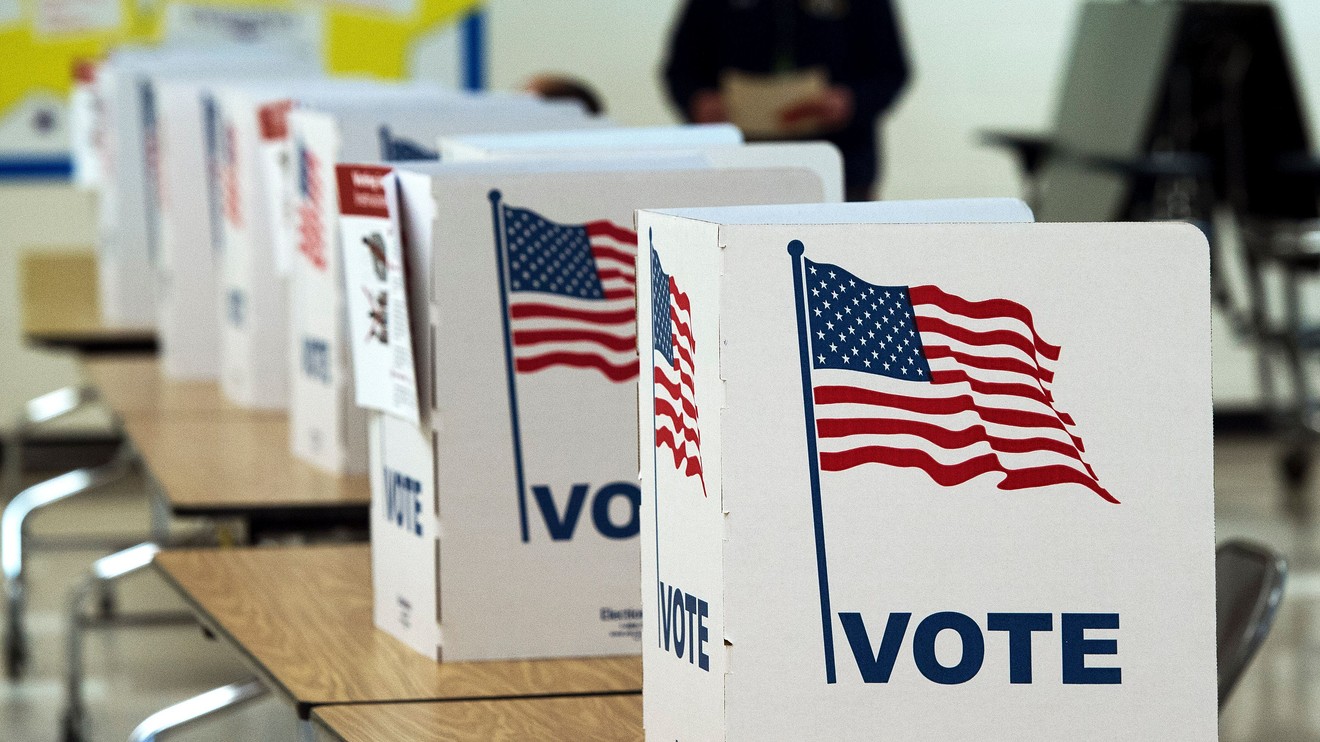Donald Trump’s Republican allies have faced a series of courtroom defeats in key U.S. presidential election states as Election Day approaches, potentially boosting voter turnout and expediting the certification of the eventual winner. In the past three weeks, these allies have suffered at least 10 court losses in battleground states that will play a critical role in the November 5 contest between former President Trump and Democratic challenger Vice President Kamala Harris.
On Friday, they encountered another setback in Virginia when a federal judge blocked the state from removing individuals it claimed had not proven their citizenship from voter rolls. U.S. District Judge Patricia Tolliver Giles ruled that this removal violated a federal prohibition against purging large numbers of voters within 90 days of an election. While Virginia does not play a swing state role in this election, the state plans to appeal.
In Georgia, judges ruled against Republicans in four separate decisions, halting last-minute changes to election rules proposed by Trump’s allies. These changes included a requirement for poll workers to hand count ballots and attempts to purge voter rolls. Legal experts suggest that these losses indicate a failing legal strategy for the Republicans, which may ultimately encourage higher voter turnout. Additionally, these rulings will likely allow officials in Georgia to count and certify votes more efficiently.
“If courts had accepted some of these arguments, it could have had a huge impact on voter disenfranchisement,” said Richard Hasen, a law professor at UCLA.
In a rare win for Republicans, the 5th U.S. Circuit Court of Appeals ruled that Mississippi must count mail-in ballots only if they arrive by Election Day, invalidating the state’s five-day grace period. However, this ruling does not directly affect any battleground states.
The Republican losses undermine claims that the party seeks to tighten election security to prevent fraud, which Trump falsely asserts cost him the 2020 election. Democrats and voting rights advocates accuse Republicans of attempting to make it harder for people to vote and for officials to count those votes.
While some cases could reverse on appeal, others await resolution. Republican National Committee spokeswoman Claire Zunk defended the party’s legal efforts, stating, “Our unprecedented election integrity operation is committed to defending the law and protecting every legal vote. We have engaged, and won, in record numbers of legal battles to secure our election.”
A Harris campaign spokesperson criticized Republicans, saying they exploit the legal system to amplify unfounded fears about election security. “For months, MAGA Republicans have tried to use our legal system for free PR to spread lies about our free, fair, and secure elections, but they have failed to provide a single shred of evidence for their bogus claims,” spokesman Charles Lutvak said.
So far this election cycle, 265 election-related lawsuits have been filed, including 71 by Republicans and their allies, according to Democracy Docket, founded by Democratic election lawyer Marc Elias. Alongside their Mississippi win, Republicans have highlighted at least six other legal victories since August, including blocking a voter registration deadline extension in Georgia and enforcing stricter signature verification measures in Michigan.
However, recent weeks have brought significant setbacks for Republicans, particularly in Georgia. A state court judge ruled on October 15 that local election officials must certify results, dismissing a Republican board member’s claim of discretion. On the following day, Judge Robert McBurney issued an order blocking the hand count rule, citing its late implementation.
Superior Court Judge Thomas Cox invalidated the hand count rule and six other changes pushed by Trump’s allies, declaring them “illegal, unconstitutional, and void.” Georgia’s highest court recently denied a Republican request to expedite its appeal, meaning the case will not resolve until next year. Zunk insisted that these rule changes represent “commonsense measures to safeguard our elections” and expressed confidence in their success on appeal.
Judges in other battleground states have similarly ruled against Republicans in attempts to restrict overseas voting. On October 21, a Michigan judge dismissed a lawsuit aimed at tightening residency requirements for overseas absentee ballots, citing lack of merit and a late filing. That same day, a North Carolina judge denied a Republican request to prevent the state from using similar eligibility rules for overseas voters. “We are appealing both decisions in Michigan and North Carolina because the law in both states is clear: If you’ve never lived there, you can’t influence their elections,” Zunk stated.
Legal experts, including Hasen, suggest that many Republican lawsuits likely faced inevitable failure, primarily designed to cast doubt on the election’s legitimacy and amplify Trump’s fraud claims. Paul Smith, a Georgetown Law professor, noted that these early court losses might actually serve the Republicans’ strategy to promote fears about voter fraud, which they could leverage to challenge the results if Trump loses. “What they’re likely going to do is bring up these claims of fraud not so much as legal issues but to support whatever disruptive plan they have to interfere with vote counting and certification,” Smith said.

